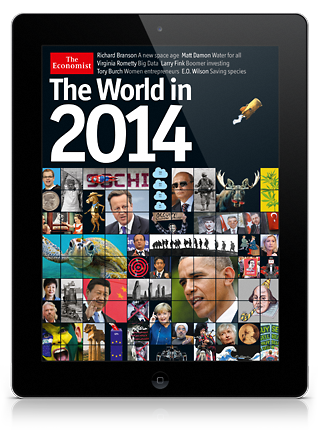Recently I was shocked – if not really surprised – to hear that not much seems to have changed in some English classes of (German) schools. I learned about a fifth grader who was not doing very well in English. I asked what his problem seems to be and was told that he had made a lot of mistakes in his last test. Naturally, my next question was: well, what kind of mistakes, and was totally astonished as to the prime nature of his failure. Continue reading
Reinsurance Quiz
Some of the questions of the following quiz relate to the reinsurance company hannover re, but not all. Those that do concern HR’s specific company culture.
Order of Operations
Last week we had an interesting little debate about math education. It does happen every once in a while that we talk about maths, and I always find it interesting. I have quite a few mathematicians in my groups and in general like to know a little about my group participants’ fields of expertise. I also used to like maths in school before I had the wrong teachers. And yes, there is no doubt about it: your success in maths has little to do with your brain (or gender) and all with your maths teacher/s. Continue reading
WEF 2015: Income disparity tops list of global risks
Every year around 1 000 experts (700 in 2014) from industry, international organizations, government, academia and society are asked to give their assessment of a list of global risks. The results are reported on the WEF webpage, where you can also find the survey itself and graphic analyses of the results.
Here the link to this years WEF report.
BUZZWORDS Revisited
One of my favorite webpages, and one I can strongly recommend to teachers and students of English alike is www.macmillandictionary.com/buzzword, and here especially Kerry Maxwells collection of ‘BUZZWORDS’.
Buzzwords are newly formed or created terms that reflect upon different kinds of social phenomena or new fads and trends and thus are great for discussion. Additionally, from a language perspective, they offer insight into word formation processes. On the webpage is a whole list of new words and an archive going back several years.
Every once in a while I choose some I find interesting and believe (or hope) will trigger lively discussions. (see post May 2013) Continue reading
Make Me A German
Last week we watched a documentary from the BBC about an English couple who move to Germany to find out what living in Germany is like: Make Me A German. Justin and Bee Rowlatt, both journalists, move to Nuremberg where he takes on a job with a medium sized company (Faber-Castell) and she stays at home to be a good housewife and mother. The differences to their lives at home in England and the related problems they encounter offer great material for discussion.
Is it I or is it me?
Harry Potter fans might answer this clearly as all characters in J.K. Rowlings Harry Potter series say ‘It is I’ – something my linguistic mind always stumbles over for a brief second when reading it. A student in one of my classes also recently asked about this.
Modern English does not have a case system, like e.g. German. The functions of subject and object in a sentence are determined by word order. Thus in the sentence – The cat is chasing the dog – who chases who(m) is clearly determined by the position of the two noun phrases ‘the cat’ and ‘the dog’. If I change the position of the noun phrases and say – The dog is chasing the cat – the situation changes dramatically from the perspective of the cat.
In German, e.g., which has a case system, we could have something like Den Hund jagte die Katze. The subject would be the cat even though Continue reading
London Tower Commemorates World War I
On my visit to London this year, I went to the Tower of London to look at the art project installed to commemorate the British soldiers who died in WWI.
It is quite fascinating as you can see if you go to the link below or google Tower of London.
http://globalnews.ca/news/1491578/photos-red-ceramic-poppies-spill-from-tower-of-london/
November: In the meantime some weeks have past and the sight around the Tower has changed dramatically. Continue reading
Of Football and Funerals or: What is ‘public viewing’?
Here, finally, my World Cup 2014 post. We are looking forward to the next round, the quarter finals, Germany will play France on Friday – fortunately at the earlier time – many of us did not manage to watch the late games to the end. I was often unfortunate to leave the scene just before the first goal, but I heard I was not the only one. I looked into a lot of tired eyes last week, however, trafic was fairly low so I didn’t have to leave so early in the morning.
But now on to my vocabulary issue.
How Stuff Works
Another great page I love to look at with classes, and, additionally, on you tube: How Things are Made – little videos reminiscent of the German show with the Mouse.
Anniversaries, Anniversaries …
… are always a chance to take up the topic of a historical event.
The most crucial anniversary of 2014, at least from a European perspective, is the centennial of World War 1. History books tell us the outbreak of war was triggered by the assassination of the Archduke Ferdinand in Sarajevo, an incident that Nassim Taleb considers might have been a Black Swan: an unpredictable event of large impact. Continue reading
Some Thoughts on Sugar
Every once in a while and more often than one would think, a conversation starts about food. The triggers are various. In my case, as I have changed my diet a year ago, and don’t eat certain things (actually mainly two things), questions sometimes arise when this gets noticed. Continue reading
The Hazy Memory of a Simpler Past
One of my favorite newspaper columns is Oliver Burkeman’s This Column will Change Your Life that he writes for the Guardian Weekly. The texts are short and poignant, the topics often refreshingly provocative and thus great for classroom discussions.
His column from February 2, 2014 is about our nostalgic tendency to believe in the past everything was better. Depending on the age of the person reminiscing, this could be any decade. What unites them all, according to Mr Burkeman, is that the person praising the respective time (and complaining about how things have changed since ‘then’ – and not to the better) was around seven at the time.
How Languages Are Learned (1)
This morning in class, the question of correcting came up again (see post from February 18).
A colleague, who subbed for me while I was on vacation, seems to have a noticeably different practice from my own and three of us started talking about this after class.
The issue of correcting someone while speaking raises a lot of questions concerning the process of language learning on the one hand, but also on the subject itself: what is it that we are actually learning? What is or should be in focus? Continue reading
Yesterday’s Modality
Modality (2)
In the first post on modality, I only covered the forms referring to a future activity:
We should leave soon.
We could go to the cinema.
She might come tomorrow.
You can/may go now.
I would like to go now.
I will go now.
We can also use modality with past time reference if we need or want to. Continue reading
Modality (1)
On the page The Verb Structure Circle, I discussed the four basic building blocks of the English verb: the simple forms 1 (so-called ‘simple present’) and 2 (so-called ‘simple past’) and the aspects continuous and perfect.
What this basic approach to English verb structures does not cover is modality. What is modality? Continue reading
One of the Seven and Another Classic to Guess
Last week the topic of the ‘seven sins’ came up again (see post from 25. June 2013). We had been reading about a general decline in the sales of soft drinks. In this connection, the topic of the attempted ban of XXL drinks in New York City came up. The question arose why anyone would buy such large drinks in the first place, instead of maybe buying a second if you still wanted more after the first (smaller) one. The ‘History of Supersizing‘ provides an answer: we seem so have a tendency not to take seconds so as to not appear piggish. Thus, if marketers want people to buy more of their drink, they have to increase the size of one. (revised December 2021)
Continue readingThe Economist’s Annual Issue of the Year
Link for 2024 The World Ahead 2024 from The Economist
Link for 2023 The World in 2023 – what to expect

Every year, the British magazine The Economist publishes a special issue that focuses on the events of the coming year. They write about upcoming events, things that might, could or will happen, and report on how on-the-spot their predictions for the previous year were.
This year, their selection of events around the world (Calendar 2014, p 32) was accompanied by a wonderful illustration by Kevin Kallaugher, their editorial cartoonist, and … Continue reading
Of Giraffes and Hot Coffee Cases
Last week, a little news item seemed to cause quite some stir. As it was one of the leading articles on the BBC web site, I couldn’t fail to notice it too. There was a warning of watching the accompanying video, as the images could be disturbing:
Warning: The following video contains graphic scene which may cause distress
Continue reading
NY City’s (Failed) Ban on XXL Sodas and the History of Supersizing
Recently we read an article in class on the mayor of New York City’s attempt to ban the sale of supersized soft drinks. In January, the city’s health board “passed a ban on serving sodas and other sugary drinks larger than 16 ounces (0.5 l) in restaurants and cinemas” (Moya Irvine in Read On , January 2013, p 1).
We discussed the pro and con arguments and related issues like causes of obesity, our own eating and drinking habits, general lifestyle issues etc. According to Moya Irvine, the main parties against the ban were those who feared Continue reading
